TRI-AGNEWS

Spring/Summer 2022
 PRAIRIE VIEW A&M UNIVERSITY
PRAIRIE VIEW A&M UNIVERSITY

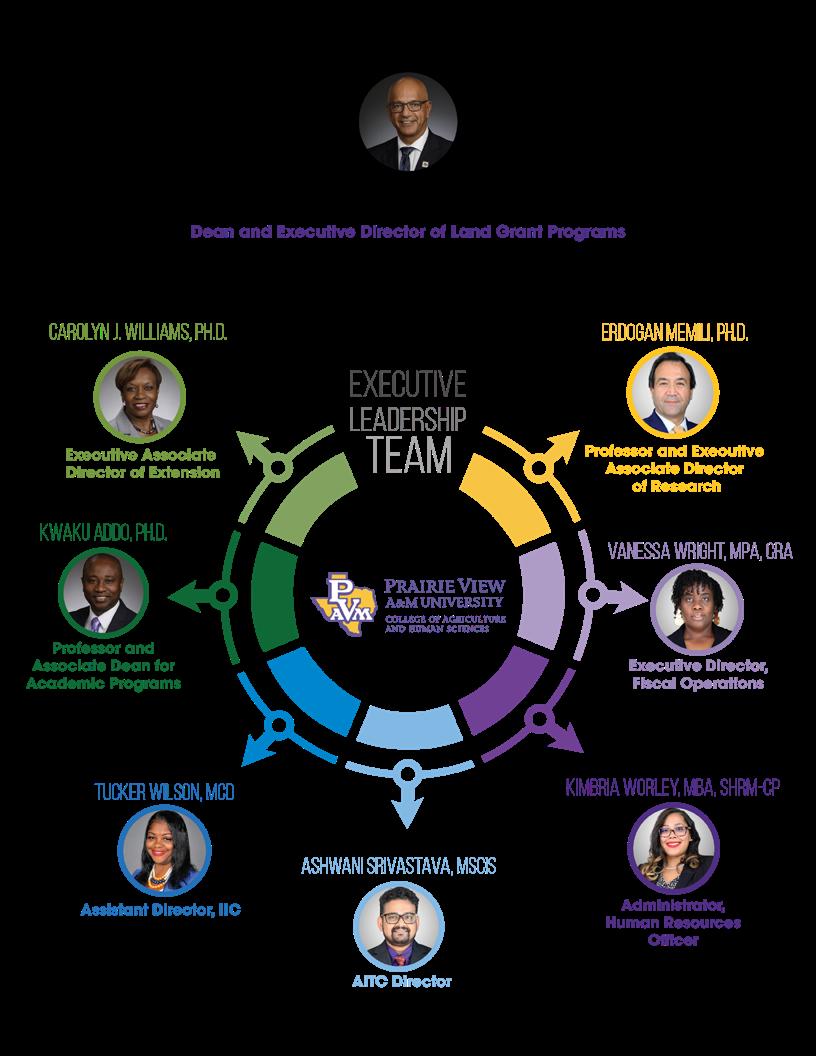
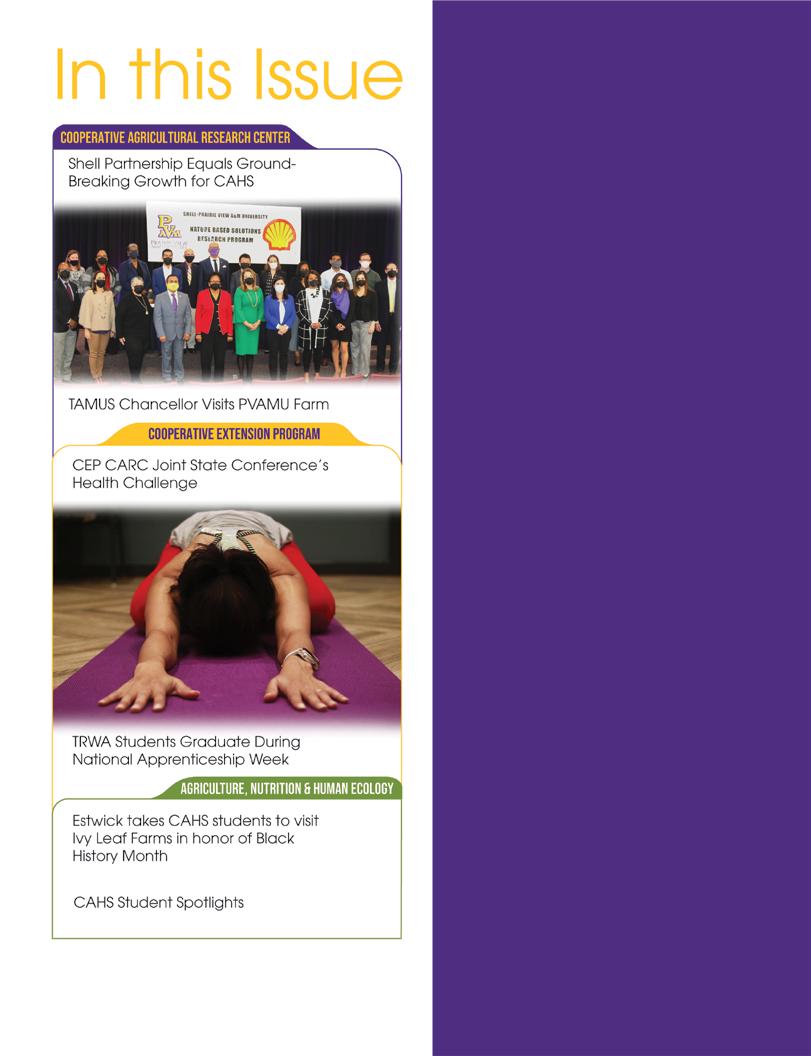


J. SIMMONS President
M. PALMER Provost GERARD D’SOUZA Dean and Director of Land-Grant Programs ERDOGAN MEMILI Executive Associate Director of Research KWAKU ADDO Associate Dean CAROLYN J. WILLIAMS Executive Associate Director of Extension TUCKER WILSON Assistant Director of Information Impact Center TUCKER WILSON Tri-Ag Editor-in-Chief EBONY OHEN Creative Director and Graphic Designer Contributing Writers PASCALE MONDESIR KRISTEN WELLS-LEWIS ARICIE PITON TUCKER WILSON HENDRIX BROUSSARD NOEL M. ESTWICK CYNTHIA PIERFAX ANGELA MOORE Sends news, story ideas and comments to: 250 E.M. Norris St. | P.O. Box 519, MS 2001 | Prairie View, TX 77446 cahscomm@pvamu.edu TRI-AG NEWS is available electronically pvamu.edu/cahs/e-publications Easy Donation Options MAIL A CHECK Carden-Waller Cooperative Extension Building 250 E.M. Norris Street | P.O. Box 519; MS 2001 Attn: Fiscal Department Prairie View, TX 77446 VISIT US ONLINE www.pvamu.edu/cahs Click on ‘Opportunities’ & go to ‘Ways to Give’ ACCESS US DIRECTLY Using this QR Code Photography PASCALE MONDESIR ARICIE PITON TUCKER WILSON EBONY OHEN Proofreaders/Editors WASH A. JONES TRI-AG NEWS is the official impact news magazine for the College of Agriculture and Human Sciences at Prairie View A&M University. This publication is the intellectual property of Prairie View A&M University’s College of Agriculture and Human Sciences. Kelley RedmonWilliams is credited with its original concept and design. IIC’s Graphic Designer Ebony Ohen, under the leadership of IIC Asst. Director Tucker Wilson is credited with the layout and art direction for this issue. To reproduce or redistribute this publication, please request permission (or any parts of its contents) by contacting Tucker Wilson at (936) 261-5116 or via email at tuwilson@pvamu.edu. This work is supported by the USDA National Institute of Food and Agriculture, the Evans-Allen 1890 Research Formula Program and the 1890 Extension Formula Program project under Section 1444 and Section 1445. The contents are solely the responsibility of the College of Agriculture and Human Sciences and do not necessarily represent the official views of the USDA or NIFA. Opinions expressed are not necessarily shared by the College of Agriculture and Human Sciences, PVAMU or the Tri-Ag editor. 17 22 12 26 4 6
RUTH
JAMES
By Tucker Wilson
The future looks bright for tomorrow’s agriculture professionals, including researchers and scientists. PVAMU’s College of Agriculture and Human Sciences (CAHS) will be home to the new PVAMU-Shell Nature-Based Solutions (NBS) Research Program. The five-year, $5 million research program focuses on innovation and agriculture and promises to give students an unmatched opportunity.

4
“This agreement is very timely given the soon-to-belaunched new curricula area in Natural Resources and Environmental Sciences (NRES) in the college (a BS concentration area and an MS program),” said Gerard D’ Souza, Ph.D., CAHS Dean and Director of Land Grant Programs. “The agreement will lead to internship and employment opportunities as well as provide data –and access to Shell scientist expertise –for research projects and theses.”
Students will have access to more experiential learning opportunities on the farm, especially when it comes to soilplant-environment relationships and soil carbon sequestration.
“The partnership will help create the most advanced soil research lab on the planet,” said Selda Gunsel, President, Shell Global Solutions.
In addition, Prairie View A&M University and Shell Global Solutions’ agreement will give birth to new facilities on the campus’ 700-acre farm and ranch to support research in areas of clean air and water and maintaining biodiversity, thanks to Shell’s additional $1 million donate to create a career pipeline for students.
“I am excited about a new state-of-the-art greenhouse facility coming to the college,” said Aruna Weerasooriya, Ph.D., CAHS Professor and Plant & Environmental Scientist. “It will give our students additional hands-on experience on sustainable future farming practices.” The collaboration’s benefits will extend beyond the university as well.
“It will be an opportunity to promote CAHS’ NRES program and expertise globally,” said Ali Fares, Ph.D.,
CAHS endowed professor of water security. “It will generate additional opportunities, projects, and interest from different entities, students, researchers, and other industries to collaborate with CAHS.”
Fares said this partnership will impact Texans’ quality of life positively and bring well-needed attention to PVAMU and other HBCUs’ contributions to society and the environment worldwide.
“The partnership also brings right front and center one of our most important cultural values around equality, diversity, and inclusion,” said Gretchen Watkins, President, Shell Oil Company.
That sentiment was echoed by the project lead for the Shell PVAMU partnership. “We expect to see the sustained and frequent flow of people and ideas between our two great organizations for years to come and make progress nurturing the next generation of talent,” said Haibin Xu, General Manager, Shell Global Academic Partnerships.
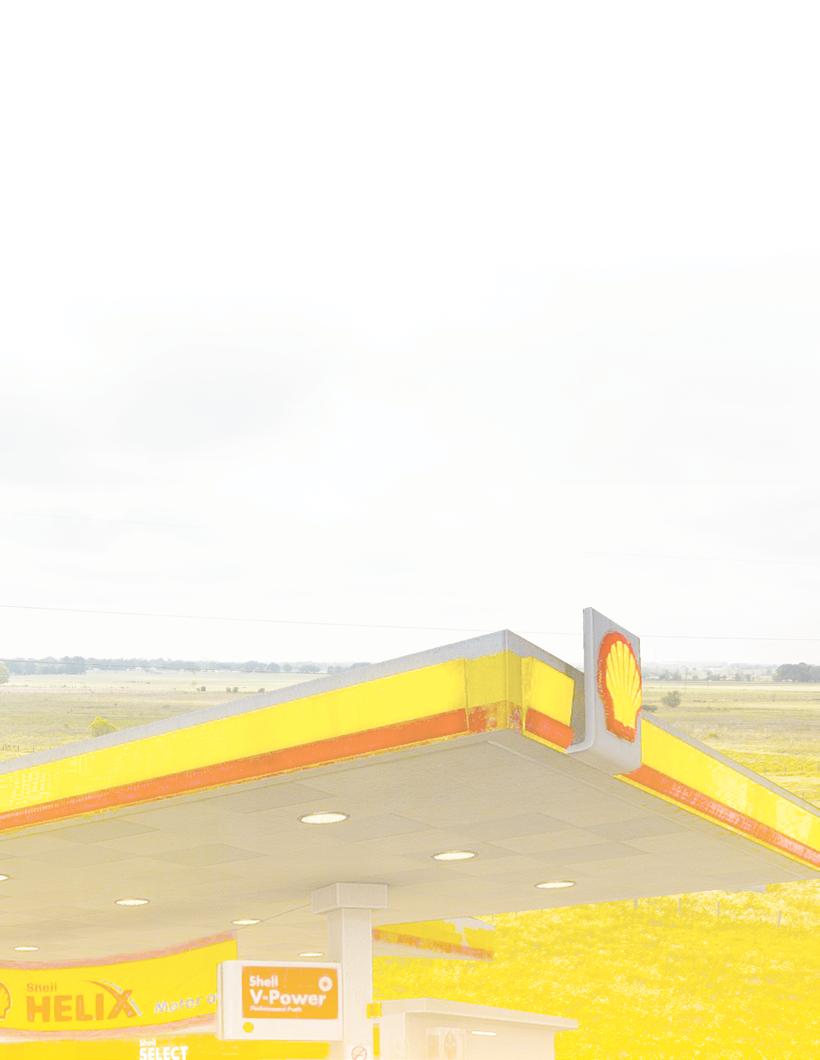

The agreement has been in the works for more than a year and finally culminated on campus at the start of the Spring 2022 semester.
FOR MORE INFORMATION about the new state-of-the-art green house facility contact:
Aruna Weerasooriya, Ph.D. Research Scientist adweerasooriya@pvamu.edu (936) 261-5011
TAMUS Chancellor Visits PVAMU Farm
 By Pascale Mondesir
By Pascale Mondesir
Texas A&M University System Chancellor John Sharp visited Prairie View A&M University’s Gov. Bill and Vara Daniel Farm & Ranch on April 18, 2022, along with Texas State Representative for House District 75, Mary Gonzalez, to tour the facilities, visit with students and learn more about the ranch’s daily functions. Rep. Gonzalez worked with Sharp to plan the visit and they met with PVAMU President Ruth Simmons, Ph.D., and heard about the College of Agriculture and Human Sciences’ advancements from CAHS Dean and Land Grant Director Gerard D’Souza, Ph.D.
The students and farm employees set up vignettes around the farm that displayed the work done in the various areas, including the International Goat Research Center. The guests saw all the awards students won at the Houston Livestock Show and Rodeo and met some of the students who competed and placed at the event. Sharp, Gonzalez and President Simmons spoke with technicians about lab research, and they heard from even more students who volunteer at the ranch, including those who take care of the baby goats, those doing research on goat dialysis, Texas A&M University students completing a clinical rotation, and PVAMU nursing students who spend time training in the goat center as well.
“The students absolutely loved having President Simmons out there to see the splendid work they’re doing,” Foxworth said. “Some of them even had tears in their eyes. They had the opportunity to tell their story and for a lot of them, it was important.”
Following the successful tour, Foxworth said both Sharp and Gonzalez expressed interest in learning how they can contribute to the success of the farm. He hopes that their tour leads to increased exposure
for the farm and secures more funding for the future.
“The president is at the top of the university; the chancellor is at the top of the system and the representative is part of the funding infrastructure too,” Foxworth said. “So, it is important that they see what we do, and we are trying to regain some of the international aspects, so retaining the attention of the president, chancellor and the representative helps increase our visibility.”
“I was thrilled to welcome Chancellor Sharp and Rep. Mary Gonzalez to our research and development farm, along with President Simmons,” D’Souza said. “These visits are another step to showcasing our discoveries and all the magnificent work that we are doing together with our students and for the benefit of our stakeholders on a local and international level.”
6
CEP 4-H CLUBS IN BRAZOS County Food Show 2022
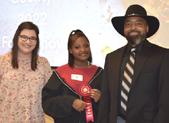


 By Hendrix Broussard
By Hendrix Broussard
The annual Food Show with Brazos County 4-H took place on January 27th. The contest included eight youth from the Cooperative Extension Program’s Heroes 4-Health. This year’s theme was “Backyard Barbecue.” The competitors had the option of presenting a main dish, side dish, an appetizer, or making a healthy dessert. They were judged on dish presentation, knowledge of MyPlate, nutrition knowledge, food preparation, food safety concerns and practices, effectiveness of communication, a skills challenge, and an interview with judges. This group also had their recipes submitted in the county 4-H recipe book. Parents said, “this is the first of many to come” Ovilla Lovings, “I am so happy my child got the showcase their skills,I am proud of my son.” Jesus Castillo Sr. The students are members of the Brazos School for Inquiry and Creativity 4-H program. They have developed an afterschool culinary class which helped them prepare for Food Show.
As a result of the competition participants placed as follow:
Healthy Dessert: De’Nasia Lovings, 2nd place
Main Dish: Addison Mata, 3rd place
Evelyn Ruiz-Saldivar, 4th place
Side Dish: Jesus Castillo, 2nd place
Malachi Carter, 3rd place
Valeria Aguirre, 4th place
Miley Carlos, 5th place
Julissa Ramirez, Participation
They all qualified to compete in Big Time in D9 Roundup in Conroe, Texas, on April 29, 2022.
Big Time in D9 is a competition for youth to showcase their knowledge and skills in various project areas on a district level. D9 includes Brazoria, Brazos, Burleson, Chambers, Fort Bend, Galveston, Grimes, Harris, Hardin, Jefferson, Lee, Liberty, Madison, Montgomery, Orange, San Jacinto, Walker, and Waller counties.

The judging categories included: • Knowledge of MyPlate
Nutrition knowledge
Food preparation • Food safety concerns and practices • The effectiveness of communication • A skills challenge • An interview with judges
7
•
•
JOINT STATE CONFERENCE








AN



JOINT CONFERENCE REJUVENATES PARTNERSHIP AND MISSION
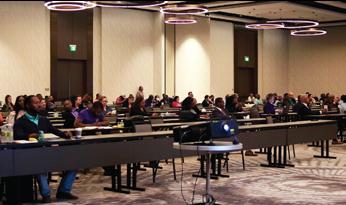
COOPERATIVE EXTENSION PROGRAM AND COOPERATIVE AGRICULTURAL RESEARCH CENTER
CONSTRUCTING
CAHS EMPLOYEE AWARDS WINNERS INNOVATIVE
AND IMPACTFUL FUTURE
MARVIN YOUNG Diversity Award
ANDREA EVERETTE Innovation Award
TRISSY MCCOY Admin. Support Award
JIMMY HENRY CEP Employee of the Year Award
RAM RAY Emerging Researcher Award
SELAMAWIT WOLDENSBETH Assistant Research Award
NATRIEZ PETERSON Assistant in Research and Extension Award
LAURA CARSON Leadership Award
It may not seem apparent, but research and outreach go hand in hand in academia. One informs the other, so impactfully that to separate either from one would lessen the influence of both entities. With this knowledge, Prairie View A&M University Cooperative Extension Program and the Cooperative Agricultural Research Center of the College of Agriculture and Human Sciences (CAHS) came together to host the first-ever CEP/ CARC Joint State Conference in Spring, Texas, from April 18 – 21, 2022.
The idea for the conference was to provide a significant networking opportunity between the two units to share ideas and brainstorm innovative plans to work closely together, strengthening the departments, PVAMU, and the community alike.



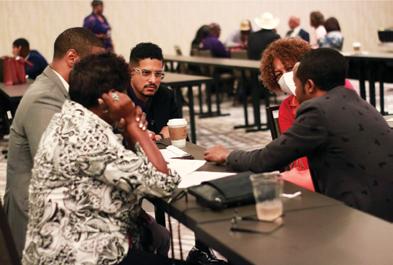
CEP Executive Associate Director Carolyn Williams, Ph.D., said, “It is so important for us to convene for this joint conference because we have so much ability, resources, skills, and expertise in our college that extension and research can truly collaborate and coordinate.” Williams added, “There are so many issues dealing with families, farmers, and youth in our communities that starting this conference is vital. We will see some amazing results because of the collaborative spirit and teamwork already in our college.”
The conference’s theme, “Constructing an Innovative and Impactful Future,” welded research and communication extension networks and provided a launching pad to increase collaborations between the units. The event also prioritized healthy partnership necessities such as mental health, fitness, and building trust among colleagues. It also affirmed the university’s standing as a pivotal agricultural institution and further mapped our way to becoming a leading HBCU.
The conference convened with a panel discussion on the historical perspectives of extension and research. That panel included CAHS Regents Professor Alfred Parks, Ph.D., Director and Lead Scientist of the International Goat and Research Center William Foxworth, Ph.D., and former CEP employees Gloria Mosby, Elaine Freeney, and on the collaborative possibilities between the two units. Among all five former and current PVAMU employees, there are 150 years of extension and research!
The panelists further made a case for the need and urgency of and CARC. Outreach and education still are relevant to today’s needs. Researchers and educators still are going into counties, helping farmers, children, and adults. Those beneath the poverty line still depend on the resiliency and solutions from research to aid them and narrow the path that welcomes more crises. More importantly, the skills that each team member from the units has, can help others do their job better.
Foxworth made it clear that his team often relies on field agent liaisons like Extension Program Specialist Ashley Pellerin to tether them to the community’s needs that their research can benefit. Through that relationship, he has an easier time understanding what people are looking for and uses applied research to determine how he can fulfill those needs.
“I am a basic researcher,” Foxworth said. “And my goal is to feed the world. My job is to make more babies and feed them efficiently with better meat and milk. I do that through basic science, and I have to figure out how to take what I do and discover and equate it to something they can use in the field.”
Similarly, county agents also depend on the work and research of CAHS scientists to offer that information to the limited resource communities and producers they aid.
Though this is the first time the two areas have exclusively gathered to share ideas and increase one another’s knowledge of the units’ goals and functions, CEP and CARC always have worked together to advance the college’s mission. Throughout Dr. Parks’ time at the school, he has seen firsthand what can be accomplished when the departments use their skills to aid the community.
One of the things I notice is when we come together on projects such as this conference and field days that we do jointly, we impact more people and our efforts multiply. We can see what others are doing and that motivates me.

“I stand in front of people throughout the day in different communities and tell them, ‘this is our research-based information,’ and we always want to have something to back that up,” said Extension Agent Braxton Mitchell. “So, partnering with [CARC] to get up-to-date information and other innovative details is very important. Receiving one-sheeters from research, for example, would help answer the daily, quick questions we often receive from producers.”
- ALFRED L. PARKS
“One of the things I notice is when we come together on projects such as this conference and field days that we do jointly, we impact more people and our efforts multiply,” said Parks. “We can see what others are doing and that motivates me. I don’t see agents that much, but I get motivated when I see what they do in the counties. We need to come together more often, share ideas, and hear more from the world. I’m excited about this conference and what comes from it.”
Each day of the conference began with meditation, breakfast, and a general session introducing new ideas and departmental updates in CEP and CARC.
PVAMU Historians Marco Robinson, Ph.D., and Phyllis Earles, presented the dynamic history of the college, a firm reminder that the best way forward is to remember the past.
We also heard from the United States Department of Agiculture (USDA) officials, who provided an update about their work within the school and the community.
The conference included plenty of lighthearted opportunities for networking of various paths forward for future partnerships. A particularly engaging exercise challenged diverse teams of CEP and CARC employees to utilize funds to create and budget for a beneficial resource for a limited resource community. The mock project offered a unique example of what the units are capable of when using our skills to work in tandem with one another.
Through the three days, we also heard presentations from several CEP and CARC leaders who offered a snapshot into the work they are doing in their respective areas. These sessions further expanded participants’ knowledge of their colleagues and the PVAMU institution. The conference was the first time many colleagues had met people in their network.

“I enjoyed meeting some new people, like agents that I hadn’t met yet, and having something that we can go outside of the office and learn about cooperation, mental and physical health,” said Nathan Hermond, CEP Agriculture and Natural Resources Entomologist.

“I feel more confident now in myself. With new programs coming out in the summer, I would like to start working with some of the researchers and professors. I’d also love to sit and talk with them, learn from their experiences, and expand my mind.”
There are some challenges ahead in making this collaboration a priority for the college. Both CEP and CARC members are incredibly busy, and lining up calendars to increase joint projects may stall due to scheduling conflicts.
There’s also a need for research language and data to be transferable to their working communities so that the information can be a vital resource for outreach opportunities. But all of these roadblocks are worth the positive impact that will spring from a more significant commitment to working side by side.
“The research component is critical to what we take to the community,” said Williams. “So if the research is not relevant, it will not impact the community as it should. So by us being in the community as agents, we can bring the issues to the researchers, they’ll come up with solutions to address them, and then we’ll have the impact of the funding that we receive, how it’s used to improve and connect our communities better.”
By Tucker Wilson
Research indicates, on average, Americans sit for 11 hours each day. As a result, the director of Mayo Clinic at Arizona State University, Dr. James Levine, coined the famous phrase, “Sitting is the New Smoking.” The phrase drives home the idea that a body needs to remain in motion.


With that thought in mind, FCH Potter County agent, Jennifer Nickell, and Bexar County Extension Agent, Monica Aguirre, co-facilitated the Health Challenge at the recent CEP CARC Joint State Conference. Each conference attendee was given a bingo card with healthy activities to practice throughout the conference. The cards suggested activities such as drinking eight cups of water today, practicing mindful eating today, encouraging someone today, and participating in the CEPled yoga class. Each bingo square represented an activity, and the attendees who engaged in the most activities won prizes.
Nickell said she was excited to bring the health challenge to the conference. “To keep our communities healthy, we must set the example of healthy living. Hopefully, the Health Challenge encouraged and reinforced health and wellness best practices among our staff,” Nickell added, “Extension services are vital to Texans, and extension agents, staff, and faculty set the example in our communities of citizenship, leadership, and stewardship.”
The conference focused on increasing collaborations between CEP programs and CARC research, so the health challenge fit well. It was designed to inspire the integration of health


and wellness practices throughout the conference, and encouraged participants to include health and wellness practices as part of their daily activities.
The health challenge included five workout opportunities. Nickell led three-morning sessions of Basic Yoga Flow, which focused on flowing from pose to pose and linking the movements with breathing. SNAP-Ed Nutrition Education Associate Janelle Elvy-Verry was excited about the conference’s yoga sessions. “I bought a yoga mat a few months ago and never used it, but Jennifer helped me break it in. The class was fun, and Jennifer was friendly, patient, and knowledgeable. It’s hard to believe how much my body has changed within three days. I can touch my toes now! And I no longer hear a snap, crackle, or pop when I do it.”
Nickell said the class’ overall goal was to improve strength, balance, and flexibility, and it worked for CEP AgNR Agent Mary Derting. “It was great to challenge myself physically, and the mindset it created for the day ahead was a great advantage,” Derting said. That was something Maverick County FCHCEP Agent, Blanca V. Ruiz, also enjoyed. “Exercising and being able to participate in yoga and power walk fitness activity gave me the opportunity during our conference to decompress and start and grow friendships in the process.”
13
By Kristen Wells-Lewis
According to The Federal Communications Commission, more than 24 million people in the U.S. lack high-speed internet access. Even more, don’t have the skills needed to take full advantage of online resources. Combining those two things creates a digital divide that impacts future opportunities for young people and adults.
Prairie View A&M University’s Cooperative Extension Program’s Dallas County 4-H Youth Development Extension Agent, Kristen Wells-Lewis, said, that’s where we come in. By we, she means Panther Tech, a group of 4-H Tech Changemaker ambassadors at Duncanville High School in Dallas County that aims to close the digital divide and provide #Opportunity4All people in their community.
“Throughout the program, I was happy to see our ambassadors evolve in their leadership and communication skills,” said Wells-Lewis. “Many of the students didn’t see their digital skills as such a huge asset and were surprised to know how many people didn’t have access to the knowledge and resources,” she added.

And the program’s timing was perfect. Leading up to National Technology Day, the Changemaker ambassadors gained the education and tools needed
to teach technology skills to adults. They hosted a series of virtual workshops they developed on May 11, 2022.
Student Ambassador Michael Newman said, “The Tech changers program has allowed me to help others who are not as knowledgeable about technology. And it also has helped me be able to enhance my knowledge, as well as giving me knowledge about technology and the ways people use it to communicate.”
Wells-Lewis says the program is already yielding lifechanging results, and her students agree.
Ambassador Jacob Nichols points to the program’s benefits he’s gained. “So far, it has given me a little more confidence in trying to help people and in working together with group members.”
Ambassador Gregory Smith added, “The Tech Changemaker Program has helped open my eyes to the digital divide in our world when it comes to the elderly, uneducated, and those that can’t afford technology in our modern world.” He concluded, “This experience has been enlightening because it feels like we’re doing more than just a simple school project. Instead, we’re helping other people in our community when it comes to the tech world.”
JR Harris Elementary School Cinco de Mayo Celebration
By Aricie Piton
More than 250 students at JR Harris Elementary School, located in Houston, TX, participated in a Cinco de Mayo Celebration. Prairie View A&M University’s Cooperative Extension Program hosted the event on Thursday, May 5, 2022.
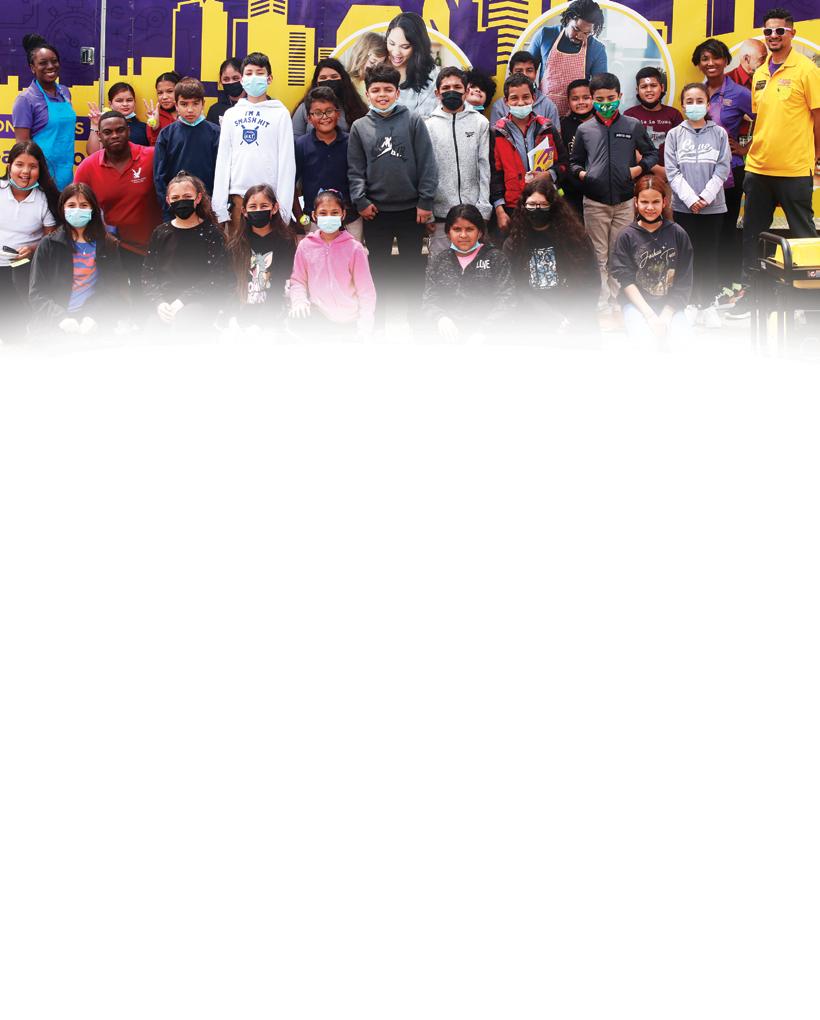
The journey to this celebration began when JR Harris Elementary School’s Wrap Around Specialist Gloria Lopez reached out to the CEP Program Coordinator, Nkem Anyasinti, about conducting a nutrition education program for the students in the first through fifth grades. FCH agents Whitney Mack and Jamyah Hill began a Choose Health: Food, Fun, Fitness series for grades 1-5 every Wednesday, from February 2 to March 9 and the classes were approximately 280 students.
Students enjoyed the program series so much that FCH agents Mack and Hill decided to start another series on March 23 titled: A Taste of Latin Heritage for grades 3-5 and MyPlate series for grades 1-2. The Cinco de Mayo Celebration was in honor of all the students’ hard work and a great way to end the last series. FCH agent Whitney Mack commented, “It has truly been an honor to be able to educate almost 300 students in a day about nutrition and Latin heritage.”
The agents created three stations for students to explore during the celebration. At station one, the
students could make their maracas using quinoa, wild rice, spoons, colorful duct tape, small round containers, and fun stickers for decoration. At station two, the students were offered takeaways: T-shirts, planners, informational flyers about Latin American heritage, and CEP branded hand sanitizers. The students gathered to make pineapple-mango smoothies at station three using CEP’s Smoothie Bike. The recipe included low-fat yogurt, milk, mango, and pineapple.
CEP’s Mobile Kitchen unit also made a debut. The FCH agents served corn tostadas, topped with sour cream, shredded chicken, and green salsa with guacamole and red salsa on the side. Samples of turkey taco lettuce wraps with ground turkey cooked in chicken broth, and tomato paste topped with Mexican cheese, red onions, cilantro, and avocado were also served.
The team of FCH agents visited students at JR Harris at least once during the series. The students were receptive to meeting new faces from CEP and were excited to see them at this event. CEP would like to give special recognition to team members Sylvia Gonzalez from EFNEP, Carley Howell and Garrett Rhyne from AGNR, Aubrion Edwards from 4-H, and Alfredo Alberto from FCH for their contributions to the success of the programs.
15
By Aricie Piton
Since its launch in May 2020,
PVAMU Wellness in Houston has come connected with over 12,000 children, students, adults, and seniors through our customized educational programs, community events,workshops, program planning, and volunteering.



Community Gardens
In the greater Houston Area, PVAMU Wellness in Houston has constructed, restored, and/ or revitalized five community gardens making it accessible to the residents within its community. We have a goal to complete an additional 10 over the next two years.

Collaborating Partnerships

Within the year, PVAMU Wellness in Houston has cultivated and fostered over 50 new partnerships with local organizations within the Houston area. Community partnerships include universities, hospitals, independent school districts, churches and professional organizations.
Covid-19 Vaccinations Administered
In collaboration with PVAMU College of Nursing and Custom Care Pharmacy. The Initiative has administered over 1,500 Pfizer and Moderna vaccinations throughout the Houston area.
16
Black farmers and agricultural innovators cahs students visit ivy leaf farms

To commemorate Black farmers and agricultural innovators for Black History Month, Noel M. Estwick, Ph.D., Assistant Professor in the College of Agriculture and Human Sciences (CAHS), and his class visited Ivy Leaf Farms in February. Ivy Leaf Farms is a Sunnyside, Houston, farm owned and operated by Ivy Walls, a Black female farmer. The trip exposed the students to local food systems and they examined various economic, political, and institutional forces involved in the control and use of land and natural resources. The experience also gave the group a first-hand view of how classroom theory can be applied to address food insecurity through sustainable agriculture and equitable food systems. Ms. Walls was an epidemiologist in a hospital before she left to enjoy more time outdoors and start growing vegetables. She says the farm has only grown ever since.
“I started Ivy Leaf Farms in 2020 to be an organic food resource for my neighborhood to have vegetables,” Walls said. “Everything that we produce here on the farm is free and low cost to my zip code.”
Jeremy Peaches of Fresh Life Organics and a Harris County 4-H Agent for the PVAMU-Cooperative Extension Program (CEP) says the collaborative efforts of Ivy Leaf Farms and Fresh Life Organics are empowering local communities by partnering with local minority farmers to fight food insecurity in Sunnyside.
On the farm, the students examined its internal systems and engaged Walls and her staff in discussions about crop production, marketing, agri-tourism,
agricultural training, and financing for agricultural operations.
“Our visit to Ivy Farms was amazing,” Paul Fields, a PVAMU senior said. “As a business owner, it gave me some insight into the business aspect and the personal challenges one faces when running their own business as an African American. Ivy was able to shed some light on those challenges to give me some ideas moving forward that will help me. Just an unforgettable experience.”
The 30 students who attended the trip are enrolled in the Food Distribution Systems and the Land and Resource Economics courses. The Land and Resource Economics class is an African American Studies (AFAM) course under PVAMU’s African American Studies Initiative, which highlights the achievements of Black farmers.
“As a professor, there are numerous benefits and much satisfaction to be derived from exposing students to such opportunities,” Estwick said. “However, my top two takeaways were hearing students express their appreciation for seeing the application of classroom theory in a real-world setting and observing the student-to-student interaction. I offer sincere thanks to Ivy Leaf Farms, Fresh Life Organics and everyone else involved in making this field trip successful.”
Ivy Leaf Farms and Fresh Life Organics currently are making plans to open a local grocery store in Sunnyside, with farm-fresh produce and value-added products.
By Pascale Mondesir
USDA Hosts Small Plant Roundtable at CAHS
By Tucker Wilson
The United States Department of Agriculture hosted a roundtable panel for small plant managers at Prairie View A&M University (PVAMU) in the College of Agriculture and Human Sciences (CAHS). The Members of the USDA’s Food Safety and Inspection Service (FSIS) spoke to the PVAMU audience, detailing the processes for USDA policies in terms of labeling and meat handling practices.
The day began with welcome remarks by the PVAMU Director of the Meat Science Center, Lea Kinman, Ph.D., followed by remarks from Jennifer Baxter, Ph.D., from the Texas Department of Health Services – Meat Safety Assurance Division. Afterward, FSIS representatives provided updates on the department, followed by policy updates, such as labeling methods, approvals, and upcoming labeling changes.
The roundtable also discussed USDA’s efforts to expand meat and poultry capacity in rural areas. Kinman led FSIS members on a tour of the new meats lab after a Q&A. The state-of-the-art facility is officially opening by the end of the summer.
It was a pleasure hosting the USDA-FSIS small plant roundtable at Prairie View A&M University,” Kinman said. “It was exciting to see the number of participants learning about new policy updates, including labeling. PVAMU was also thrilled to give some USDA participants a tour of the brand-new meat science center.
By Tucker Wilson
The College of Agriculture and Human Sciences’ Information and Impact Center (IIC) won two awards for their communicative work in the college at the Association for Communication Excellence Conference, including a gold award for the Monday Minute newsletter, a biweekly blog curated by the IIC.
The ACE Conference occurred between June 1114, 2022, in Kansas City, Missouri. ACE highlights the excellent communication efforts in several land and sea-grant institutions across the United States and internationally. The conference gathered professionals from all over the world to network, host presentations, and seminars, and award both universities and individuals who had a substantial impact on their schools and the communities they serve.
The IIC won gold in the publishing category for Monday Minute. Judges praised the newsletter for its design and written content, engaging cover, and consistent typography. The IIC also took home silver in the Electronic Media category for the CAHS Promotional Video. The video was lauded for its engaging soundbites, videography, and interviews.
The IIC’s Assistant Director, Tucker Wilson, Graphic Designer Ebony Ohen, Communications Specialists LaBeaula Times and Pascale Mondesir, and Program Assistant Sandra Gonzalez contributed to the awarded pieces.

18
FACULTY AND STAFF SUCCESS
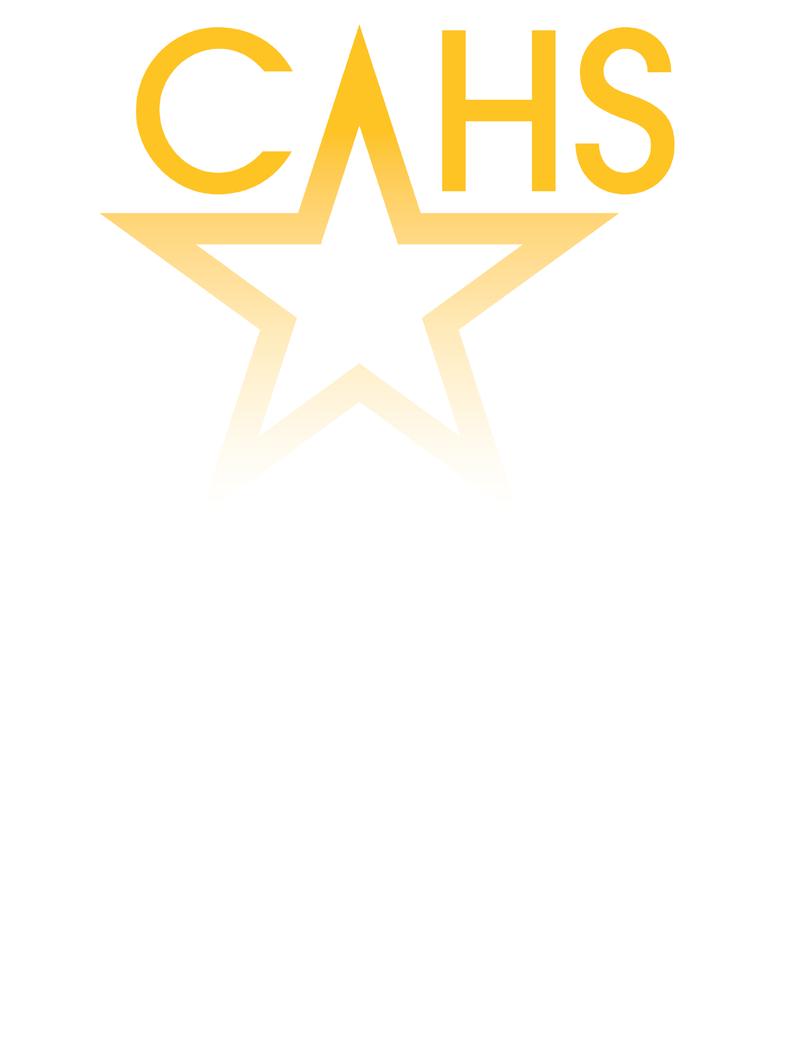
March 2022
Alberto Alfredo recipient of the Student Advocate, Circles of Excellence 2022 Criminal Justice Award.
May 11, 2022
PVAMU’s Faculty Senate has presented the Excellence in Research award to Ram Ray, Ph.D.



May 24, 2022
PVAMU’s Faculty Senate has presented the Excellence in Research award to Ali Fares, Ph.D.
May 2022
Sayako Seymour was awarded the Marva E. Beck Junior Master Gardener Program
Leader Award from the Texas Master Gardener Association.
Alfred L. Parks, Ph.D. was selected as a 20202021 Regents Professor.




Ms. Kelley RedmonWilliams was selected as 2022 Women’s History Month PV Phenomenal Woman.

Jacklyn Sanders, Ph.D., completed her Ph.D. from Walden University.
Office of Parent & Family Programs awarded the PV Phenomenal Woman Award to Trissy McCoy.
CAHS STUDENTS TO BE PUBLISHED IN PEER JOURNAL
By Pascale Mondesir
Four students in the College of Agriculture and Human Sciences (CAHS) soon will be published authors. Their research, which was guided by Aruna Weerasooriya, Ph.D., and Amarasinghe Prabha, Ph.D., will be compiled for a peer journal. A’naya Ware, senior, Robert Lewis, senior, Ashyaa Brown, junior, and Camille Pierre, junior, all conducted their research surrounding Cannabis sativa.
“Honestly, I cannot believe that it is happening sometimes,” Brown said. “This has been a new, yet positive experience. When I found out that this was happening, I immediately called my parents. I was so happy to be a part of something so wonderful and potentially ground-breaking.”
Her research is titled, “Microbial community structure of retting Cannabis sativa inoculated by an undefined microbial culture.” She used “microorganisms from spoiled okra (Abelmoschus esculentus) to assist with the retting process of hemp (Cannabis sativa L). When one practices retting, it removes the pectin, lignin, and hemicellulose from the plant so that we can use hemp for its fibers to create ropes, clothes, and other textile materials.”
Brown said the experience was jarring, yet rewarding, since it was her first major accomplishment at PVAMU. “Outside of biology classes, I never worked in a lab on the scale that I am now. I knew basic rules and how to properly wear PPE, but other than that, I was completely lost. Luckily, Dr. Prabha and Dr. Aruna were wonderful mentors and helped me become more confident in my lab work.”
For Lewis, he hopes his research will be useful for future analyses and will help improve the food science industry. The title of his research is “Edible Coat Made from Hemp Wax.”
“Uncoated fruits and vegetables are susceptible to spoilage during processing, transportation, and storage, allowing microorganisms to get inside the products,” Lewis explained. “Most commercial coats in the market are artificial, and scientists attempt to create edible coats from natural materials. Here, we tested the ability of hemp (Cannabis sativa) wax to increase the shelf life of postharvest products.”
Though the experiment presented challenges and learning curves, Lewis says he feels truly honored for the opportunity to be published and encourages other students to step out and try new opportunities themselves. “I would like to say to every student out there to take advantage of every opportunity given to you. You never know what you may learn or get out of the experience.”
Pierre’s research is titled “Stem Anatomy of Hemp Strains and Physical Properties of Their Extracted Fibers.” She wanted to determine if hemp cultivated in other states and regions would grow the same way in a Texas climate.
“We used 10 hemp fiber strains to achieve three aims: test their anatomical and yield parameters linked to fiber quality and quantity, investigate their mechanical properties and determine the best retting approach.”

20
Being picked to have her work published was a humbling opportunity which Pierre never saw coming.
“I was 20 years old when I wrote this, and I never thought I’d have the opportunity to do something this big,” Pierre said. “It’s rare to see black women get these opportunities, and it honestly shocked me when I learned when I’d be published.”
Ware’s post graduate plans include joining the cannabis industry and paving another path for people of color to thrive in the predominately white field. Her research, titled “Morphological and phytochemical diversity of graintype industrial hemp,” addresses the vast genetic and structural variations of 16 industrial cannabis strains.
“We studied multiple structural traits of the strains, quantified, and analyzed plant DNA, and formed an herbarium [preserved plants] collection,” Ware said.

This is Ware’s second time getting published during her time at PVAMU, and the experience is as special to her the second time around.
“This opportunity serves as the foundation of my industrial cannabis knowledge,” Ware said. “Ironically, my career plans directly align with the research, so it couldn’t have come at a more prominent time in my life. As I am preparing to graduate this spring, it is surreal to be already working in my field before I even have a diploma. Dr. Aruna and [Greenhouse Manager] Rafash Brew have introduced me to a multitude of professionals within the industry; they believe in and support me more than some of my family— it truly speaks volumes of them.”
The students’ work will soon appear in the Heliyon peer-reviewed journal.
JAYLIN LEWIS CAHS SENIOR

Jaylin Lewis, a graduating senior from Prairie View A&M University, has only just begun her journey to become a veterinarian, but this dream has been in the making for some time. Through sheer grit and dedication to knocking down roadblocks throughout her life, Lewis is now one of ten current College of Agriculture and Human Sciences (CAHS) students who has been accepted to veterinary school, a record number for the college.
“It feels so surreal, honestly speaking!” said Lewis, the first student this year to get into a vet school.
“I’m so grateful for what’s to come in regards to my future, and I look forward to being a change agent in this industry and helping the next generation become leaders in medicine.”
Lewis has cared for animals since she was a child. Growing up, she was the only one in her life truly invested in learning about their behavior and was glued to Animal Planet. She considered herself an “animal doctor,” and that passion eventually led to an interest in becoming a veterinarian.
While at PVAMU, Lewis represented the Pre-Vet Club as Miss Pre-Vet in 2019 and became the shadow chair of the Pre-Vet Club that same year, assisting students with interning at their hospital of choice for volunteer hours. In 2020, she became President of the Pre-Vet Club and broadened her peers’ interests in the various aspects of veterinary medicine.

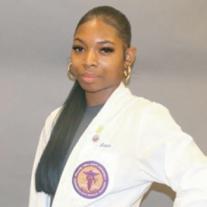
In 2019, Lewis was given the opportunity to travel to South Africa for an internship that further ignited her passion to study veterinary medicine. She considered the trip to be eye-opening and solidified her desire to pursue this career. Not only did the trip have a major impact on her success, but she also allocates a lot of her achievements to the late Dr. Wendell Baker, a veterinarian who created a clinic near PVAMU. Dr. Baker passed away in 2021.
“I have to pay tribute to Dr. Baker, God rest his soul,” Lewis said. “Without him, I wouldn’t see veterinary medicine through the lens I do now. He believed in me when I didn’t believe in myself, and he pushed me to get out of my comfort zone because he knew my capabilities.”
According to the U.S. Bureau of Labor Statistics, African Americans make up only two percent of the industry. Witnessing Dr. Baker’s successful career served to motivate Lewis to be the same role model for other students. Applying to veterinary school is competitive and rigorous, Lewis said, and she fought to suppress negative thoughts about the process. She had to learn to stop comparing herself to the thousands of other applicants who were competing for a spot at the same schools.
CAHS STUDENT SPOTLIGHT
“Roadblocks appeared along the way,” Lewis said. “However, these blocks also molded me into the young woman I can proudly say I am today due to my drive, discipline and determination. Prairie View truly does produce productive people!”
After graduating from Prairie View A&M University, Jaylin plans to attend Purdue University College of Veterinary Medicine. She also plans to travel abroad to gain a global perspective that will guide her in her specialization.
“She is an excellent student, very dedicated, very disciplined, and very determined to achieve whatever she sets her mind to,” said Milton Daley, an Assistant Professor in CAHS. “Not only am I very proud of Jaylin, but also the university as a whole. She has been the trendsetter for this academic year in terms of getting into vet school.”
Through Prairie View A&M University, Lewis gained invaluable resources through CAHS that helped her receive an early acceptance offer at Purdue. Prairie View A&M University advanced her networking and communications skills, which, in turn, made her grow as a person.
When she completes veterinary school, Lewis plans to climb even higher. Her long-term goals include becoming a board-certified neurologist and opening up her own practice that will aid students with an interest in veterinary school.
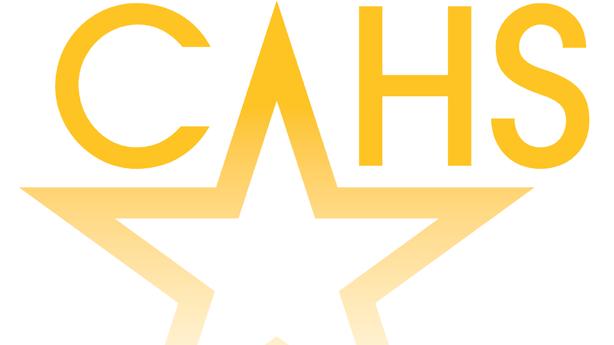
STUDENT SUCCESS
A’NAYA WARE Reaches New Heights
The clarity and joy found in determining your passion are unmatched. It can change the trajectory of your life and lead you to a wellspring of possibilities. That is the story of A’naya Ware, a graduating senior in the College of Agriculture of Human Sciences, who will soon begin her agriculture career researching cannabis. While it’s common for most students in CAHS to go the pre-veterinarian or dietitian route in CAHS, Ware took to hemp research early during her time here at Prairie View A&M University and has never looked back.
“My roommate’s godfather at the time was talking to us about agriculture, particularly about the cannabis industry and how it’s getting ready to make this big boom that black people are not benefitting from in any way,” Ware recalled. “So that conversation sparked something in me and ever since then, I said this is what I’m going to do. And once I make up my mind, that’s it.”
Ware transferred to PVAMU in 2019 from Clark Atlanta University, majoring in biology to become a physical therapist. But after struggling to connect to the work, she shifted to agriculture and found her drive.
“The agriculture material really resonated with me,” Ware said. “I was lost in more than one way my freshman year. Something didn’t feel right. But ever since switching to Ag, a lot of things have changed. I’m more conservative now, I eat better, it was a whole big change.”
Transferring to PVAMU allowed her to get more hands-on experience and opened her world to hemp. Throughout her time here, she worked in the greenhouses conducting research and managing plants, presented her own research at multiple student symposiums and was recently published in a peer-reviewed journal.

“I’m so grateful to the school for all the opportunities,” Ware said. “Prairie View has been good to me. I wish the pandemic didn’t come and ruin a lot of things, but even then, I excelled at what I know I can do.”


One of Ware’s goals includes changing the cannabis industry from the inside out, and help it become an inclusive place for all people, which will hopefully lead to decriminalizing the plant nationwide. Her many achievements and determination to succeed can be traced back to her love of hemp. The versatile plant offers an endless supply of innovation beyond marijuana.
“You can wear hemp clothes, water bottles can be made from hemp, biofuel, houses, it’s a zero-waste plant if you want it to be,” Ware explained.
CAHS STUDENT SPOTLIGHT
“If we tap into all its uses, not only will it be very marketable, but it can also do a lot for the environment. Then there are its healing properties. Also, not everyone can grow it, so I like the challenge.”
In June, after graduation, Ware will begin an internship at Tetra Hemp, a local hemp producer in Texas. In this role, she will continue the kind of research she conducted at PVAMU. Her professor, mentor, and guide through hemp research, Aruna Weerasooriya, Ph.D., helped her secure the internship.
“I am very proud of A’naya’s accomplishments during her undergraduate research on industrial hemp,” Weerasooriya said. “Her curiosity, dedication, and commitment made her an excellent budding scientist. She is really a role model for other students. I wish her every success in her future endeavors.”
Other professors have also made her academic studies a success here in CAHS. “Mr. Rafash Brew, Dr. Prabha Amarasinghe, Dr. Griffin, and Dr. Daley helped me a lot. I only took Dr. Ampim’s class twice, but it stuck with me because it gave me the foundation for crop production and forest management.”
“In all of the classes that I have taught A’naya, she has impressed me with her thirst for learning and her desire to be of service to humanity by doing her best to make people healthier,” CAHS Professor Richard Griffin, Ph.D., said.

Ware is so assured of her future in hemp that she has the next several years of her professional career planned. After the Tetra Hemp internship, she will be mulling over a few other opportunities that will best serve her. Then she plans on becoming a fulltime hemp cultivator and running her own operation in Texas. She also wants to produce fruits and vegetables, made available to a local community so she can provide quality produce for those in need.
“I do want to stay as sustainable as possible,” Ware said. “A lot of the time with cannabis, once you enter that large-scale realm it becomes less about the quality of the plant and more about numbers and pushing product. I want to grow for a purpose, to serve the community around me. They have needs and I want to meet them.”
Ware’s career path demonstrates how broad and profitable an agriculture degree can be. Her hope is that her path will lead other students to take a chance in agriculture.
“I wish more students would at least minor in agriculture, outside of the pre-vet track. If that’s your passion, I’m rooting for you. But it’s good to keep your options open in agriculture. I recommend everyone study a little bit about taking care of plants, at least take one class,” Ware suggests.
Ware hopes that PVAMU’s future includes more graduate and doctoral programs geared toward agriculture, specifically soil and plant sciences.
STUDENT SUCCESS
TRWA Students Graduate during National Apprenticeship Week
By Pascale Mondesir
During the COVID-19 pandemic, one Historically Black College and University continued to offer their certification courses when job hunters searched for options and employers desperately called for skilled workers.
Prairie View A&M University’s (PVAMU) The Rural Workforce Academy (TRWA), a program within the Cooperative Extension Program’s (CEP) Community & Economic Development unit, kept their doors open and allowed students to become qualified competitors in the job sector, free for those qualified. This week, the university celebrated National Apprenticeship Week by highlighting the great successes of the academy and a look ahead at what is to come.

26
The program came to fruition in 2020, thanks to the dedication of Jimmy Henry, the Program Leader for the Community & Economic Development unit at PVAMU. Armed with the vision to allow rural residents to invest in their future and careers, he submitted a proposal that awarded the CEP a three-year $800,000 grant from the U.S. Economic Development Administration Department of Commerce and PVAMU. Through TRWA, students can become certified in welding, electrical installation, core construction, and nursing assistants.
The week’s festivities began on Monday, where CEP’s Executive Associate Director Carolyn Williams, Ph.D., welcomed participants and praised the academy’s excellent work. The College of Agriculture and Human Sciences Dean and Director of Land Grant Programs Gerard D’Souza, Ph.D., also spoke about TRWA’s efficiency and influence. The Apprenticeship Training Representative for USDOL Office of Apprenticeship, Jon Lavin, and Texas State Director of USDOL Office of Apprenticeship, Lee Price, both expressed their eagerness to work closely with PVAMU to ensure TRWA’s success.
“We want to be a part of the excellent job, and we want to partner with you here as you progress into the future with your apprenticeship program,” Price said. According to Price, TRWA has trained more preapprentices than any other agency in the State and HBCUs nationally.
The program’s goals are to help participants earn a certification, secure employment, become lifelong learners, and more. In February 2021, TRWA officially became a Registered Apprenticeship Program – one of only a few training programs that have this distinction and as of June 2021, has graduated more than 303 pre-apprentices.
And the program can expect the volume of graduates to increase in the future as the number of certification courses grows. TRWA will offer masonry, cybersecurity, drone piloting, carpentry, CNA, telecommunication/CCTV technology, and organic gardening in the spring. There will also be courses that allow rural residents to discover and access new industries.
“If you’re into small businesses, we’ll make a pathway to small businesses for you. If you need housing, we will make a pathway to homeownership for you, which will include credit counseling and financial literacy,” Workforce Development Program Specialist Laura Jones said. “One course that will be mandatory is home and family organization because that is where you first succeed.”
The rest of the week featured information sessions on the workshops offered by the academy and a graduation luncheon on Thursday, where graduates reflected on the program’s ability to provide them with the tools, community, and opportunities that may not have been present otherwise. A virtual job fair for employers and employees was held on Friday morning.
CEP’s Extension Specialist Natriez Peterson, Extension Program Specialist Talia Washington, Assistant Director of Waller County Economic Development Unit Amanda Stevens, and many more PVAMU partners lend their expertise and support to the program.
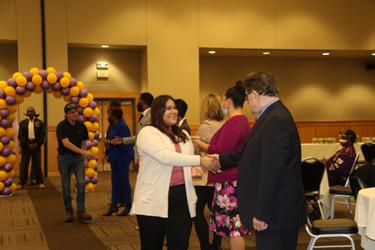
FOR
MORE
INFORMATION about PVAMU’s TRWA program, please visit: https://www.pvamu.edu/cahs/ rural-workforce-academy
27
Launch of PECOP Fellowship Program
 By Tucker Wilson
By Tucker Wilson
The Pathways to Early Childhood Obesity Prevention (PECOP) Fellowship marked the commencement of a three-year NIFA/AFRI/REEU-funded summer program. It trained students in nutrition and dietetics, agriculture, health, and early childhood education about the fundamental determinants and consequences of early childhood obesity through basic applied research, teaching, extension, and hands-on learning.
Program goals include enhancing student experiences, professional development, and career preparedness and promoting diversity, equity, and inclusion in the nutrition and health industries. Kwaku Addo, Ph.D., Associate Dean of Academic Programs, delivered virtual remarks and encouraged ten undergraduate students selected from PVAMU (9) and Houston Community College (1, HCC) to take advantage of the training and mentorship offered through the program to develop their leadership and professional skills.
Principal Investigators and Co-Principal Investigators Janet Antwi, Ph.D., Peter Ampim, Ph.D., Javad Baroeui, Ph.D., and Joyce Osborne also participated. Susanne Talcott, Ph.D., (Associate Professor, Texas A&M University), Leslie Comfort, Ph.D., (Professor and Program Coordinator, HCC), and Barbara Fiese, Ph.D., (Professor Emerita, University of Illinois –Urbana Champaign), and Kimberly Christy (Pediatric Dietitian, Ohio) also shared tips with the students. Noel Estwick, Ph.D., and Indika Rathnathungalage, Ph.D., are the additional Co-Principal Investigators.
By Cynthia Pierfax
PVAMU’s Cooperative Extension Program has partnered with Dr. Robert Harper from the Hope Initiative and Erin Steamer, Graduation Counselor at Madison High School, to implement their College Readiness program.

The intent of this program is to equip the students of the junior class, rightfully, so they can succeed in earning acceptance into a collegiate institution. Within this process, the students will be provided with the best materials to prepare them for ACT and SAT testing.
The objective for the participants of the program, is to have over 80% of its members score above average on their ACT/SAT Testing. The students will be guided to apply to institutions that most align with their chosen career paths,
28
while ensuring that they are accepted.

To reduce any risk of achievement gaps, the students will have access to academic support and counsel for success strategies. As well, the students will learn how to strengthen their resume and interviewing skills for their future.
The program assembles as a club, which meets every Tuesday and Thursday until the completion of May. Some of the topics that will be explored are: personal assessments, learning styles, perspective career paths, different collegiate institutions, and many more.
Cynthia Pierfax, an Extension Program Specialist with PVAMU’s Cooperative Extension Program, and Aubrion Edwards, one of CEP’s newest Extension Associates, made an appearance on Madison High School’s stage on Tuesday, March 8th,
to introduce and invite the junior students to explore the curriculum the club has to offer. The student responses and enrollment into the club were outstanding.
Special guest, J. Mulan, hosted the event, introducing guest speaker Dr. Robert Harper, Lamar Hill, CEO of New Balance, and musical performances by DJ CHOSE and Hd4president. It was an exciting event, filled with laughter, giveaways, inspiration, and dancing! It was the perfect kick-off to a journey of exciting and successful events.
Following the kickoff, 4H hosted a Spring Break college tour for students at Madison High School. The tours consisted of a visit to Prairie View A&M’s campus, as well as the University of Houston.
CAHS STUDENTS visit
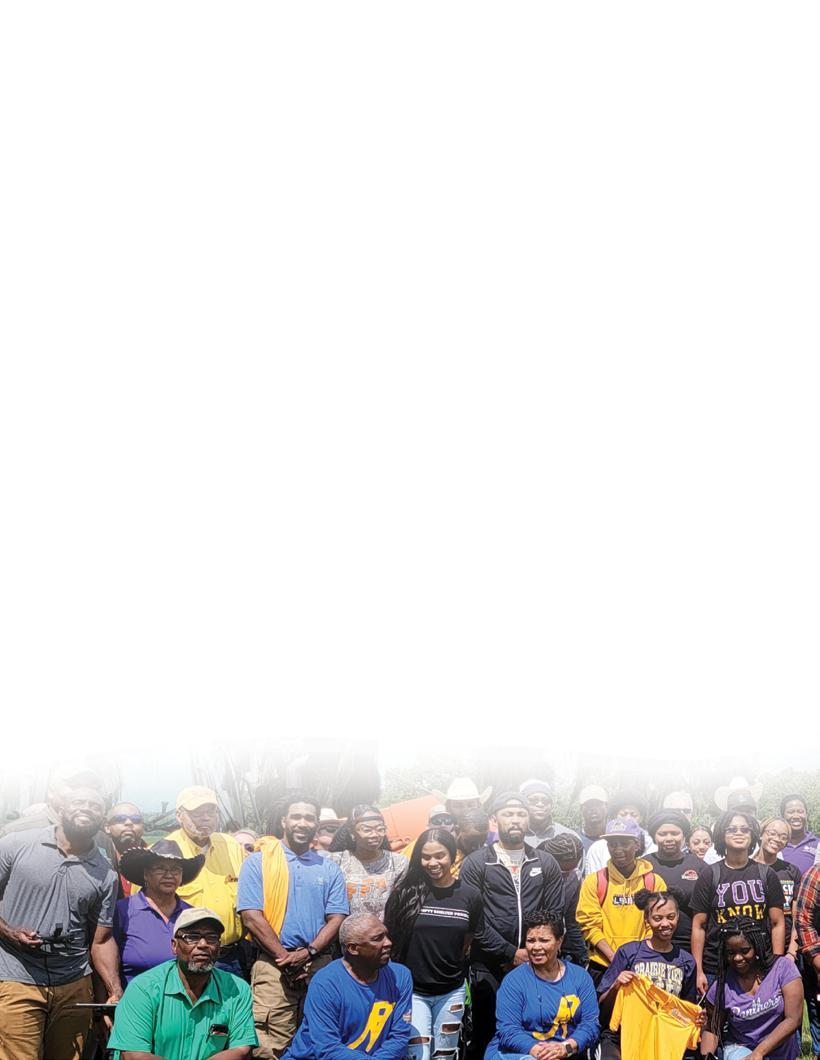 By Pascale Mondesir
By Pascale Mondesir
A group of students from the College of Agriculture and Human Sciences (CAHS) visited Fred Newhouse’s Rhonda Ranch in New Waverly, Texas, on April 28, 2022. USDA/1890 Program Liaison Horace Hodge, Regents Professor Alfred Parks, Ph.D., and CAHS Dean and Director of Land Grant Operations Gerard D’Souza, Ph.D., took the students to tour the ranch. Several agricultural professionals discussed various plant and animal management roles in the industry. They also heard a presentation from Newhouse and other guests about current job opportunities in agriculture around Texas.
“It was very pleasing to see the students so engaged in trying to understand the ranch operation,” Hodge said. “They sought to know how managing natural resources are critical to profitability.” The day began with an introduction from Newhouse, who provided the history of his operation. Newhouse bought the ranch in 2007 and has successfully run commercial beef production. He also owns other farms in east Texas that tend to cattle and growing pine trees.
“I grew up on a farm, and when I left home, the last thing I wanted to do was go back and work on a farm,” Newhouse recalled. “Then when I would pass all these beautiful ranches, and I thought to myself, one day it’d be nice to own one of those, and now
I’m back,” he says with a laugh. The tour’s first stop was an animal husbandry demonstration, where farm employees showed the students how to dole out the proper vaccine amount to a female cow and safely administer the shot. Newhouse’s ranch practices lowstress management, which “creates an environment that maintains little or no stress for the cows.”
“Cows are very docile,” Newhouse continued. “They are friendly and peaceful. They do not like discomfort, so they do better in low-stress situations, so we treat them nicely. Happier cows produce more and live longer.”
Students rotated across the lush, spacious ranch to visit with various wildlife experts, who set up vignettes demonstrations of their work year-round in their positions. After the animal husbandry display, the students watched a natural water quality expert explain the type of wildlife found in different bodies of water and its implications, followed by a drone demonstration. They also participated in a handson activity with forestry management professionals highlighting the various tools used to measure the heights and ages of different forest trees. Finally, a plant and soil health specialist gave the students a tutorial about the difference between useful and less than ideal soil. After a catered lunch, representatives
RHONDA RANCH
from the USDA and the Texas Parks & Wildlife Careers offered special insight on the current and upcoming openings within their respective fields. PVAMU Foundation member Ernie Collins also toured the facility with the students. The day served as a potent reminder of the agricultural industry’s myriad opportunities. CAHS professors have made it their mission to expose students to the advantages of an agricultural degree, apart from the usual preveterinarian track.
And it seems like their goal was a success. A few students mentioned speaking to the professionals changed their minds about the trajectory of their careers. Xzjhamyra Stevens is a junior pre-vet agriculture major who intended to be a veterinarian, but the trip now has her open to the possibility of a new career.
“The wildlife biologist made me change my mind,” Stevens said. “I was majoring in biology before but then changed to pre-vet when I came to PVAMU (Prairie View A&M University). He said many of us think we want to be veterinarians, but many options out there caught my attention. On TV, we see veterinarians around the globe traveling, but plenty of scientists do as well.”
Stevens heard of the trip from an email she received and randomly decided to go. Though she is still determining her professional path, she knows agriculture is still the route for her.
“We depend on animals more than we think we do,” Stevens explained. “They are our food source; they’re our companion, we use them for work and things like that. So, we need to pay more attention to how their health benefits our health.”
Newhouse says Stevens’s revelations help fuel his decision to host these trips to his ranch. Newhouse is a famed PVAMU alum and an Olympic medalist. Yet, for him, empowering agricultural students is a core objective of his life’s work.
“I want to extend the ranch to the upcoming generation. Students complained about not receiving hands-on experience, so we do it this way, within the university’s boundaries, and bring them to the ranch. We have designed a program that complements what they do in the classroom and why it is important in the field. We took a break after COVID and severe weather, but we are back on track.”
 By Noel M. Estwick
By Noel M. Estwick
On May 17-19 (Tuesday-Thursday), 2022, more than twenty in-person and virtual participants from across the 1890 and 1862 networks, US EPA, and FEMA, gathered for the 1890-Extension Disaster Education Network (EDEN) Advisory Group (AG) Meeting at Florida A&M University (FAMU) in Tallahassee, Florida. The group meets annually to plan and conduct activities that strengthen disaster programming in the 1890 community.
In December 2009, the national EDEN sponsored a workshop to outline strategies to address the lack of 1890 Land-Grant Universities (LGUs) involvement in EDEN. Administrators, Program Leaders, Specialists and Agents participated in the workshop. Two critical takeaways from the workshop were 1.) potential for collaboration within the 1890 network and among 1862 partner institutions in EDEN, and 2.) enhanced disaster program development targeting limited resource clientele. Recognizing the importance of these and emerging disaster related issues impacting
limited resource clientele and the 1890 community, in 2017 the United States Department of Agriculture, National Institute of Food and Agriculture (USDANIFA) Division of Family & Consumer Sciences and the National EDEN Executive sponsored Dr. Noel M. Estwick as a Visiting Scholar to NIFA. A critical component of the Visiting Scholar activity was the formation of the 1890-EDEN AG. The AG was formed with program support of the Association of Extension Administrators (AEA) and is comprised of the AEA Administrator, extension personnel who are appointed by 1890 Extension Administrators, the EDEN Chair, the EDEN Project Coordinator, and a representative from Washington State University. It facilitates oversight and re-engagement in EDEN by providing guidance in the process of engaging LGUs in the EDEN network.
In response to the takeaways from the 2009 workshop, the AG developed an action plan and is committed to collaborative activities that build
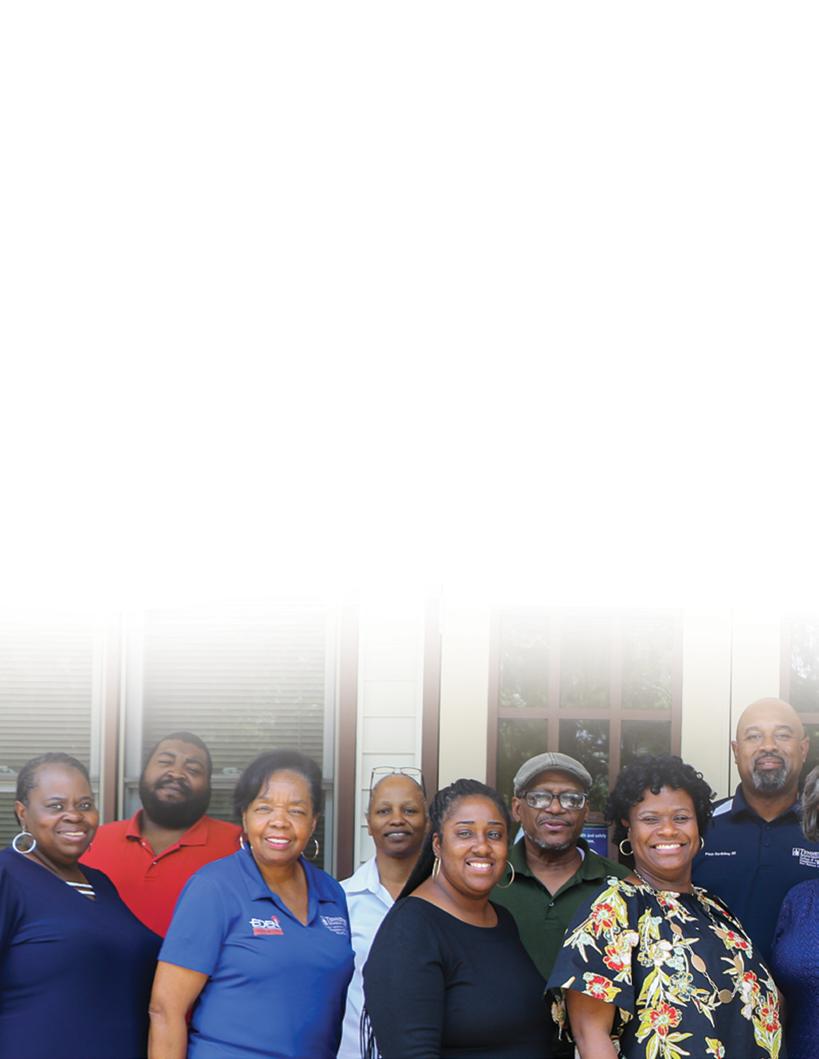
Collaborate to Foster
Research-Based Disaster Programming
disaster capacity in the 1890 network. Activities include face-to-face meetings, train-the-trainer events, and workshops. The 2022 meeting hosted by FAMU adopted the theme “Building 1890 Disaster Capacity in the COVID-19 Pandemic Era.” Sessions included 1.) risk management/campus emergency management by Ashley H. Davis and Kimberly Davis of FAMU, 2.) family preparedness planning by Dr. Dorothy Brandon and Ciji Griffin of Alabama A&M University and 3.) the College/Underserved Community Partnership Program (CUPP) by Jeannie Williamson of the U.S. Environmental Protection Agency, Region 4.
The 1890-EDEN Advisory Group is funded by the USDA-NIFA through national EDEN at Purdue University.

SUSTAINABLE FORESTRY AND AFRICAN AMERICAN LAND RETENTION
By Angela L. Moore
The Agriculture and Natural Resources (AgNR) section of the Cooperative Extension Program (CEP) at Prairie View A&M University’s College of Agriculture and Human Sciences (CAHS) is three months into its second year of its hugely popular Sustainable Forestry and African American Land Retention Program. By most accounts, the SFLR Program, as it is commonly known, has been an overwhelming success. The SFLR Program, launched in 2020 through a two-year grant from the American Forest Foundation (AFF) to Prairie View A&M University, makes it one of only two that are administered by an 1890 Land-grant Institution within the SFLR Network, which is comprised of eight partnering organizations nationally.
One of the key components of the SFLR Program is forestry and educating landowners about sustainable forestry practices. Forestry experts speak about the benefits of forest management, how forestry can be utilized to address land retention, and how forestry potentially could provide a source of revenue to landowners.

Land Retention, particularly, as it relates to African Americans, is a second key component of the SFLR Program. Research shows that land retention in the African American community lags far behind the levels of land retention for other segments of the population. One reason is believed to be a lack of Will preparation and Estate planning, without which the land becomes heirs’ property. When land is categorized as heirs’ property, it usually means multiple people jointly share ownership of the property. This status quite often leads to the land being loss, either due to non-payment of property taxes, a forced sale, or many other means.
The SFLR Program provides landowners information and resources to help them mitigate land loss, improve land retention, and increase their participation in sustainable forestry.
In 2021, AgNR partnered with four Community Based Organizations, the Landowners Association of Texas, Pineywoods Small Farmers and Ranchers, CBO, 100 Ranchers, Inc., and Agroforestry Small Farmers and Ranchers, CBO, to host eight SFLR outreach workshops in eight counties within the State of Texas, four SFLR legal clinics, and a Joint Regional Conference. In 2022, the SFLR schedule is dramatically more ambitious, with this year’s SFLR programming including eleven monthly virtual SFLR Outreach Workshops that cover 22 counties, six bi-monthly SFLR Legal Clinics, four quarterly SFLR Reckoning Programs, and a day and a half bi-state SFLR Joint Regional Conference scheduled for August 30th and 31st. Plans already are underway to invite close to 35 high-profile speakers on the national, regional, state, and local levels to address various topics related to forestry, land retention, heirs’ property, and the USDA financial programs available to address these and other agricultural needs. The SFLR workshops have an average attendance of 25 landowners, and this year’s Joint Regional Conference attendance may be on target to surpass last year’s attendance of 200.
The first four virtual SFLR Outreach Workshops in 2022 are hosted in Bowie/Cass, Smith/Henderson, Waller/ Grimes, and Houston/Walker Counties, with the AgNR CEP County Extension Agents, Brandon Hawkins, Anthony Brown, Stedman Douglas, and Corey Hicks, facilitating in each of the respective bi-counties area. AgNR also relies on relationships with various agencies to facilitate the delivery of the SFLR Program, including partnership with AgriLife Extension, Texas A&M Forest Service, Texas Forest Association, United States Department of Agriculture (USDA) Farm Service Agency (FSA), USDA Natural Resources Conservation Service (NRCS), along with legal firms, Phillips Kaiser and Hubbard Law Firm. Individuals interested in attending any of the SFLR events should contact their local CEP County Extension Agent or contact Angela Moore at (936) 261-5002 or via email at almoore@pvamu.edu.

SFLR Outreach Workshops DATES February 17, 2022 1pm – 4pm CST 1pm – 4pm CST 1pm – 4pm CST 1pm – 4pm CST 1pm – 4pm CST 1pm – 4pm CST 1pm – 4pm CST 1pm – 4pm CST 1pm – 4pm CST 1pm – 4pm CST 1pm – 4pm CST March 10, 2022 July 14, 2022 April 14, 2022 August 11, 2022 May 12, 2022 September 8, 2022 November 10, 2022 June 9, 2022 October 13, 2022 December 8, 2022 TIMES SFLR Legal Clinics DATES February 24, 2022 1pm – 3pm CST 1pm – 3pm CST 1pm – 3pm CST 1pm – 3pm CST 1pm – 3pm CST 1pm – 3pm CST April 28, 2022 December 15, 2022 June 30, 2022 August 25, 2022 October 27, 2022 TIMES SFLR Reckoning Program DATES March 30, 2022 1pm – 3pm CST 1pm – 3pm CST 1pm – 3pm CST 1pm – 3pm CST 1pm – 3pm CST June 29, 2022 September 28, 2022 August 25, 2022 December 14, 2022 TIMES SFLR Joint Regional Conference DATES August 30, 2022 9am – 4pm CST 9am – 1pm CST August 31, 2022 TIMES The comprehensive SFLR Schedule for 2022 is as follows: FOR MORE INFORMATION about attending any of the SFLR events Angela Moore Program Specialist almoore@pvamu.edu (936) 261-5002
This work is supported by the USDA National Institute of Food and Agriculture, 1890 Extension Formula/Evans-Allen 1890 Research Formula Program projects under Section 1444 and Section 1445.

The contents are solely the responsibility of the authors and do not necessarily represent the offi cial views of the USDA or NIFA.

36 CONTACT US cahscomm@pvamu.edu pvamu.edu/cahs or @pvamucahs Visit us online

 PRAIRIE VIEW A&M UNIVERSITY
PRAIRIE VIEW A&M UNIVERSITY









 By Pascale Mondesir
By Pascale Mondesir



 By Hendrix Broussard
By Hendrix Broussard

















































 By Tucker Wilson
By Tucker Wilson


 By Pascale Mondesir
By Pascale Mondesir
 By Noel M. Estwick
By Noel M. Estwick





